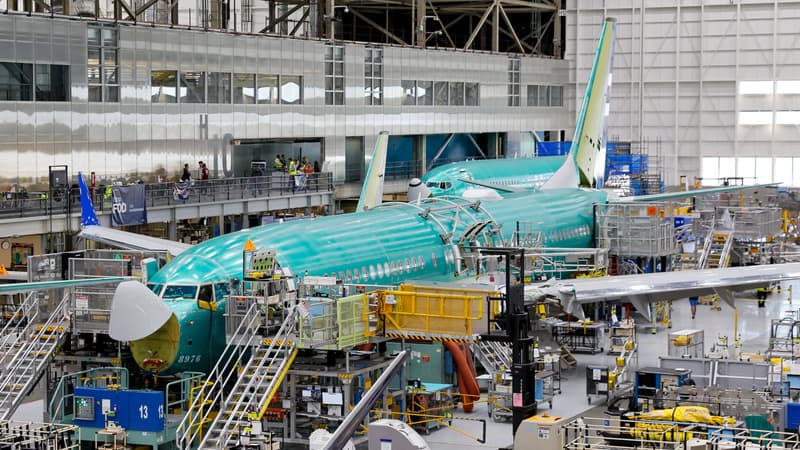Boeing announced on Tuesday the withdrawal of the offer made to the IAM machinists’ union, which it accuses of having raised unreasonable demands, and the suspension of negotiations aimed at ending the strike that has paralyzed its two main factories since mid-September.
The American aircraft manufacturer made this decision, made official through an internal statement, after a two-day third round of negotiations, which ended on Tuesday. The IAM (International Association of Machinists) union has declared a strike since September 13 affecting 33,000 members in the Seattle region, home of Boeing.
The group’s two main factories in Renton (which produces the 737, its best-selling plane) and Everett (which produces the 777 and is home to several military programs) are among the sites completely closed.
“The union did not take these proposals seriously”
In the internal letter, Boeing’s head of commercial aviation, Stephanie Pope, states that the aircraft manufacturer’s management presented, during this third round of discussions, new proposals, improved over the previous version. The group has significantly increased net salary and retirement pensions, according to the manager.
“Unfortunately, the union did not take these proposals seriously”, preferring, according to her, to put forward “non-negotiable” demands that far exceed the limits of what is acceptable if we want to remain competitive. “Therefore, continuing negotiations would not make sense at this time and we have withdrawn our offer,” concluded Stephanie Pope.
However, Boeing says it is ready for new talks once the IAM is ready “to discuss an agreement that is respectful of our employees and preserves the future of our company.”
“We are united collectively”
“We will win our case,” the IAM reacted in a statement published on its site, stating that Boeing had refused to “propose any (new) salary increases”, career progression measures or contributions to the employment fund.
The union plans to carry out a survey of its members next week to define “the priorities” of this negotiation. “We are united,” launched the IAM, “united and ready to face the challenge against one of the most powerful companies in the world.”
The union, despite everything, declared itself “willing to continue negotiations directly or through a mediator.” Two rounds of negotiations have already been held (September 17 and 18, then September 27) in the presence of federal mediators to try to reach a new four-year social agreement.
A draft agreement was rejected on September 12 – the expiration date of the previous agreement – by almost 95% of the members of IAM-District 751, the local branch of the union. They were dissatisfied with the proposals, particularly in terms of salary increases (+25% instead of the +40% requested) and retirement. 96% voted in favor of the strike.
On September 23, excluding mediation, Boeing submitted a qualified “best” and “final” offer, which included a 30% salary increase. He was rejected by the union leadership.
The manufacturer, which is going through a difficult period due to production quality issues, has taken steps to preserve its cash flow during the strike. In particular, it resorted to technical strike, which affects tens of thousands of the group’s employees.
Financial ratings agency Standard and Poor’s announced Tuesday that it had placed Boeing’s ratings on negative watch due to the strike, meaning the U.S. planemaker could fall into the category of speculative borrowers.
Several American media have indicated that the manufacturer was considering a capital increase of at least ten billion dollars to raise new money.
Source: BFM TV


